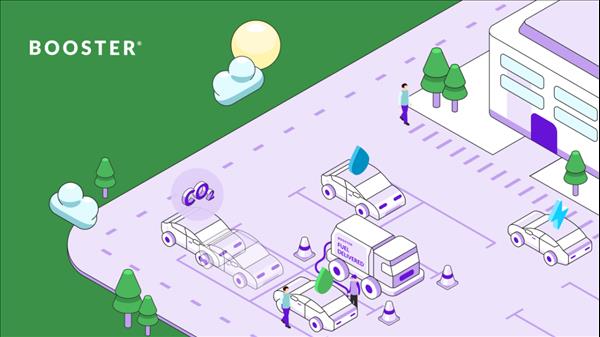(MENAFN- 3BL Media Inc) Though the energy transition is well underway, new internal combustion engine (ICE) vehicles continue to hit the roads. By 2030, over 36 million more will be sold. Even by 2040, when ZEVs are forecast to dominate new vehicle sales , ICE vehicles will continue to serve specific missions and payloads. To keep the energy transition on track, sustainable energy and fuels will help keep emissions at bay.
But as a fleet manager surveying the range of clean transportation technologies available to you, you might ask: What is sustainable fuel ?
A solution for decarbonizing internal combustion engine vehicles and fuel cell electric vehicles, sustainable fuels like biofuels, renewable diesel, and hydrogen will work alongside electric vehicles to meet the diverse needs of the transportation sector.
Introduction to Sustainable Energy & Fuels
A cleaner alternative to conventional fossil fuels, sustainable fuels offer energy from green and renewable sources like solar or wind power, biomass, municipal waste, industrial scrap, and more. Sustainable fuels are also called alternative fuels, but not all alternative fuels are sustainable. Some notable sustainable fuels include:
Electricity Biofuels Renewable Diesel Green Hydrogen Sustainable Aviation Fuel
Sustainable fuels are attractive to the transportation sector for their ability to lower greenhouse gas emissions compared to fossil fuels while offering a lower barrier to entry and, in some cases, higher efficiency than electric vehicles.
They offer fewer carbon emissions, better performance, and are often comparable in cost to their conventional counterparts. Renewable diesel, for example, can offer up to 85% lower lifecycle emissions than petroleum diesel with no required engine replacements or upgrades - meaning the fuel can be used in existing diesel vehicles.
Booster & Sustainable Fuels
Sustainable fuels are gaining traction as a decarbonization solution, but they are rarely available at gas stations. Out of about 145,000 fuel stations in the United States, the afdc reports that only 5,954 carry alternative fuels (including compressed natural gas, ethanol, biodiesel, and hydrogen) - fewer than 5%.
mobile fueling is ready to fill the gap. This fuel delivery system makes a range of sustainable fuels available without the need for development of fixed infrastructure to support them. For example, Booster's mobile fueling system expands access to renewable diesel, a fuel made from biomass and categorized by the U.S. Department of Energy as an emerging alternative fuel . With Booster's renewable diesel service - which currently fuels nearly all of our california-based fleets - fleets can realize an immediate reduction of carbon emissions without sacrificing performance.
As fleets increasingly adopt a range of sustainable solutions, many will take a mixed-energy fleet approach and slowly phase in clean vehicles, shifting the ratio of their ICE vehicles to ZEVs over time. This can complicate fueling as fleets adopt diverse energy sources to see what works best for them. Mobile fueling helps to streamline the fueling process by bringing a range of fuel sources to the fleet, with the flexibility to meet each fleet's changing needs.
To learn more about how Booster can help your fleet lower emissions and access sustainable fuels today, contact , or go to boosterusa.com .




















Comments
No comment